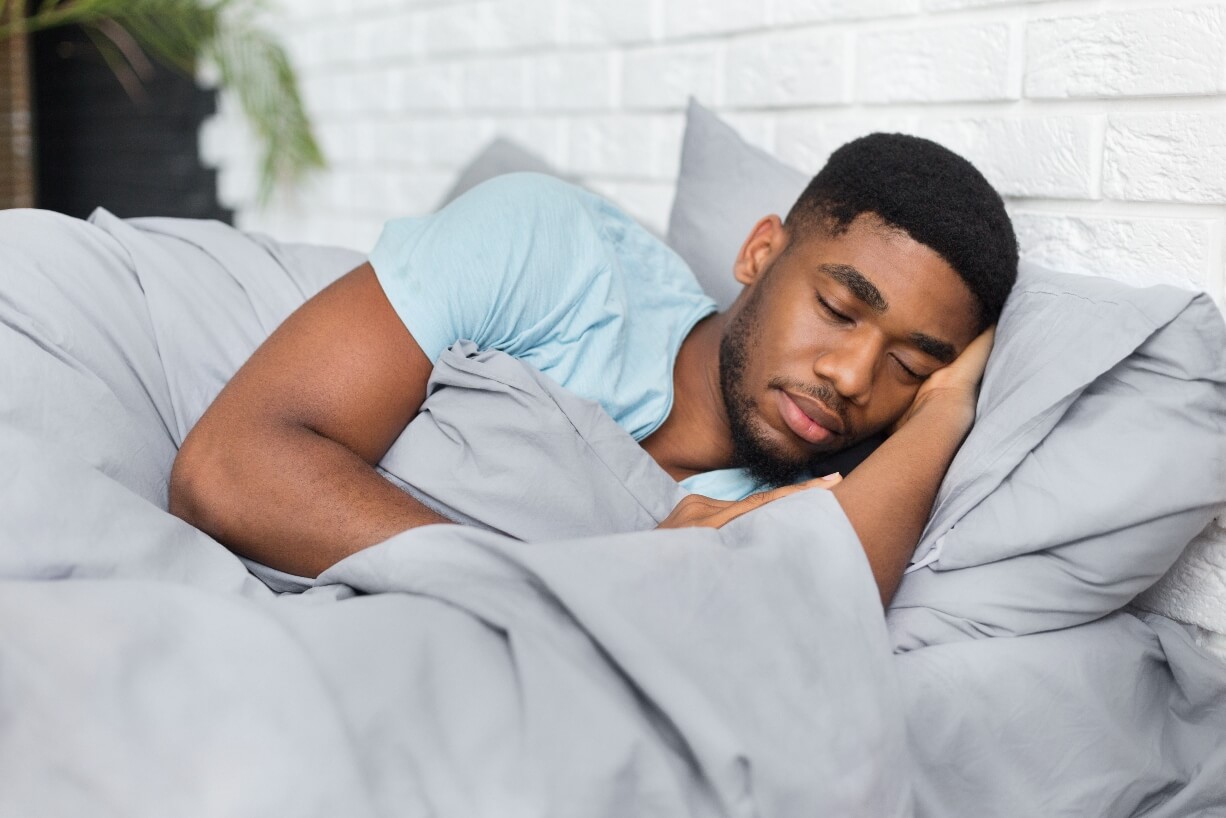World Sleep Day—the annual celebration of healthy sleeping patterns and awareness day for sleep disorders—falls on the 15th March 2024.
The NHS state that nearly one in three of us suffer from poor sleep. And the Mental Health Foundation found that nearly (48%) of UK adults agreed that sleeping badly has a negative effect on their mental health.
Quality sleep is essential to good mental health and living a happy life. It's important we take time to raise awareness of this, and World Sleep Day is a good time to do so. Learn more about sleep and its impacts below.
Impact of lack of sleep
Sleep is a vital part of our mental and physical wellbeing. Although opinions vary as to how much you need, it’s recommended that 7-9 hours per night is right for most adults. This varies between individuals, some of us need more and some less, but we can all recognise the difference when we have had enough sleep to feel refreshed, recharged and ready for the day ahead.
You are probably already aware of the impact a poor night’s sleep can have, but it can affect many aspects of our physical and mental health. For example:
Physical health: Poor sleep can have a serious impact on our physical health. A lack of sleep can make it harder to think clearly, reduce immunity, cause weight loss issues and lead to increased risks of high blood pressure, heart disease and diabetes.
Mental health and wellbeing: Research has shown that a poor night’s sleep can reduce our ability to manage our emotions, impact on impulse control, reduce positive thinking, increase worry and lead to or worsen depression.
How do I make a change?
Improve your routine and make sleep a priority: Think about your day and try to keep to the same time for getting up and going to bed. Even if you are tired, try to reduce or remove naps from your routine, if you really need a rest, then try to keep it to no more than 45 minutes.
Increase exposure to natural light: Natural sunlight or bright light during the day will help you keep your circadian rhythm healthy, which in turn, will have positive effects on your mental health.
Exercise: One of the most effective ways to improve your sleep, exercise can help relieve the tension built up over the day and relax your mind. Try to avoid exercise late in the evenings, as it may have the opposite effect.
Think about your food and drink: Avoid eating heavy meals, sugary or spicy foods in the four hours before bed. Also, try to reduce your caffeine, especially in the six hours before you go to sleep.
Preparing your sleep space
Make your bedroom a calm & welcoming safe space for sleep: You may want soft bedding or less clutter. Notice what makes you feel cosy and safe. Also, try to remove items such as TVs or electronic devices that can disrupt sleep or distract.
Try to limit noise and light: Try earplugs or headphones that can be used during sleep, eye masks or darker curtains and blinds.
Adjust the temperature to something that feels comfortable: Cooler temperatures often work best as this matches the internal body temperature drop which occurs during early stages of falling asleep.
Relax and clear your mind: Try simple stretches or mindful meditation before bed to help relax body and mind. If you prefer, then listen to relaxing music. You may find taking a bath or shower helpful.
Want to get more involved?
You can also help raise awareness of World Sleep Day and sleeping disorders by spreading the word on social media by using #worldsleepday and tweeting @_WorldSleep.
Get help with Sleep from Health Assured
If you need to access our services to discuss any wellbeing concerns you may have, our confidential helpline is available 24/7, 365.
Alternatively, if you have access to the My Healthy Advantage app, you can view a variety of wellbeing resources to improve your mental and physical health—sleep included.



